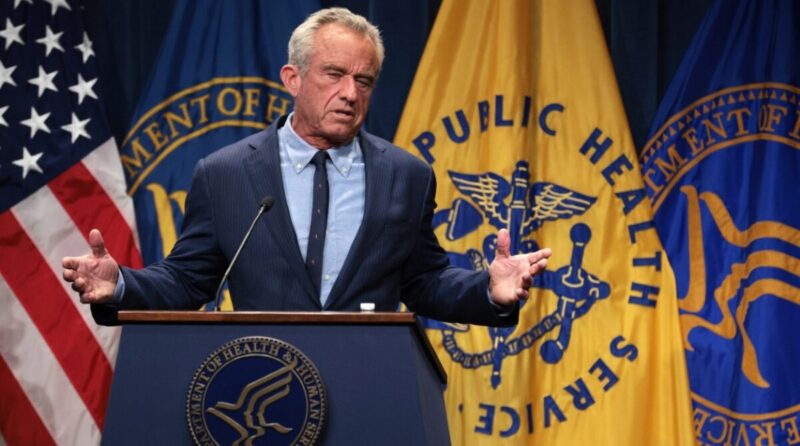RFK Jr. To Restrict Petroleum-Based Food Dyes
Health and Human Services Secretary Robert F. Kennedy Jr. is set to announce a federal directive requiring food manufacturers to phase out eight petroleum-based dyes by the end of 2026. The move, confirmed by department officials and previewed by the New York Times, will apply to cereals, beverages, and thousands of other products currently sold in U.S. grocery stores.
The targeted dyes include Red No. 40, Yellow No. 5, Yellow No. 6, Blue No. 1, Blue No. 2, Green No. 3, Red No. 3, and Orange B. These substances, which have long been permitted by the Food and Drug Administration, are now under renewed scrutiny due to growing concerns about their impact on children’s health. Several observational studies and public health campaigns have linked the artificial colorants to behavioral issues such as hyperactivity and attention deficits in children.
FDA Commissioner Martin Makary emphasized the administration’s precautionary approach, stating, “My feeling is why not err on the side of safety?” He linked the decision to President Trump’s broader “Make America Healthy Again” platform, describing the action as a public health safeguard grounded in both scientific concern and evolving consumer expectations.
The financial implications for the food industry are considerable. Reformulation costs are expected to reach billions of dollars, particularly for companies that have not yet adopted dye-free alternatives. However, many food manufacturers already offer dye-free versions of their products in European and Canadian markets, where stricter regulations have been in place for years. These international variants often use natural coloring agents such as beet juice, turmeric, and spirulina.
Consumer advocacy groups have played a significant role in accelerating the policy shift. Health activist Vani Hari, who led a 2015 campaign to remove artificial dyes from Kraft’s macaroni and cheese, described the federal action as “historic.” Meanwhile, Texas Attorney General Ken Paxton has launched a separate inquiry into Kellogg’s marketing practices, questioning how products containing petroleum-based dyes can be advertised as “healthy.”
State-level actions have also increased pressure on national food policy. West Virginia recently enacted a ban on artificial dyes and two synthetic preservatives, citing the same health risks identified by federal authorities.
To coordinate industry compliance, Kennedy held a closed-door meeting in March with executives from major food manufacturers including PepsiCo, General Mills, and Kellogg. During the session, he made clear that reformulating products to eliminate artificial dyes was a top priority for the administration.
In a statement, the International Food Additives Council welcomed the federal directive, emphasizing the importance of regulatory consistency: “A unified, federal approach is essential for maintaining a safe and reliable food supply.”
The full details of the directive are expected to be released Tuesday, setting in motion one of the most significant overhauls of food ingredient standards in recent U.S. history.


